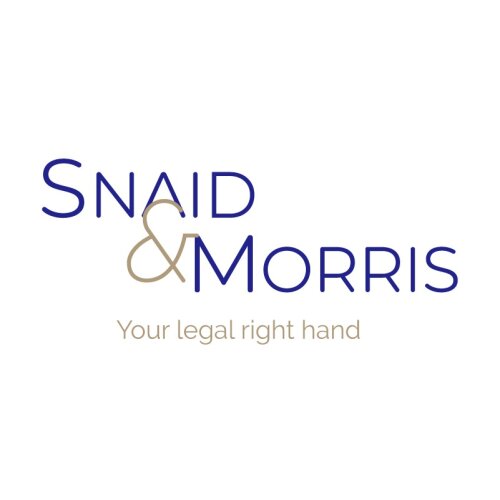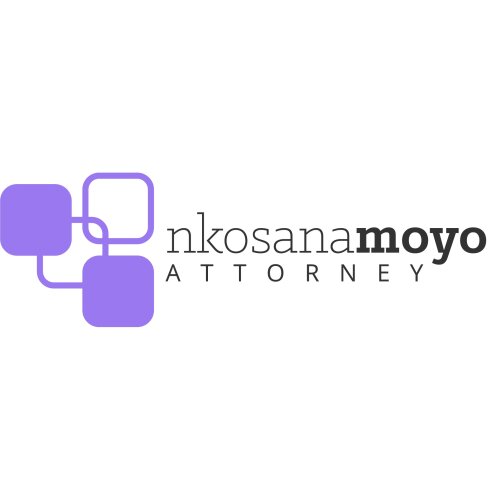Best Bankruptcy & Debt Lawyers in Johannesburg
Share your needs with us, get contacted by law firms.
Free. Takes 2 min.
List of the best lawyers in Johannesburg, South Africa
South Africa Bankruptcy & Debt Legal Articles
Browse our 1 legal article about Bankruptcy & Debt in South Africa written by expert lawyers.
- Debt Collectors in South Africa: Harassment and Verification
- You can demand proof of the debt, the collector’s authority, and a full breakdown before you pay. Do not acknowledge the debt or make part-payments until you verify it. Harassment is illegal. You may set contact times, request written-only communication, and lodge complaints with the Council for Debt Collectors or... Read more →
About Bankruptcy & Debt Law in Johannesburg, South Africa
Bankruptcy and debt law in Johannesburg, South Africa, is a significant part of the legal framework that assists individuals and businesses in dealing with financial challenges. These legal processes are designed to offer protection to both debtors and creditors, ensuring fair treatment and striving for the equitable settlement of debts. Johannesburg, as a major economic hub, has a well-established legal system that addresses financial difficulties through various mechanisms, such as sequestration for individuals and liquidation for businesses. Understanding these laws is crucial for effectively navigating financial distress and achieving solvency or debt resolution.
Why You May Need a Lawyer
Several situations may necessitate seeking legal assistance in the area of bankruptcy and debt:
- Overwhelming Debt: Individuals or businesses unable to meet their financial obligations may find relief through legal means like sequestration or liquidation.
- Creditor Actions: If creditors are aggressively pursuing collections, a lawyer can provide defense mechanisms or negotiate repayment plans.
- Understanding Rights and Obligations: Legal professionals can assist in interpreting the complex laws surrounding bankruptcy and debt, ensuring rights are protected.
- Debt Restructuring: Lawyers can guide debt restructuring processes, helping to reach agreements with creditors that may avoid formal bankruptcy.
- Asset Protection: Legal advice may be necessary to protect assets during debt recovery or bankruptcy proceedings.
Local Laws Overview
In Johannesburg, the legal framework for dealing with bankruptcy and debt is governed by both the Insolvency Act and the Companies Act, which provide the primary guidelines for insolvency and winding up proceedings, respectively:
- Insolvency Act: This act regulates the process of sequestration, which applies to individuals. It involves surrendering estate assets to pay creditors and can relieve the debtor from overwhelming debt burdens.
- Companies Act: Governs the liquidation process for businesses. The act outlines procedures for winding up a company’s affairs and distributing assets to creditors.
- Debt Review: Under the National Credit Act, individuals can seek debt review to arrange payment plans, avoiding sequestration.
- Debt Relief: The South African government has introduced measures for consumer debt relief, attempting to facilitate more manageable repayment plans for heavily indebted citizens.
Frequently Asked Questions
What is the difference between sequestration and liquidation?
Sequestration applies to individuals and involves surrendering assets to settle debts, whereas liquidation applies to businesses and involves winding up the company's operations and distributing its assets to creditors.
Can I keep my home if I file for sequestration?
It depends on various factors, including the home's value and any equity. Typically, the home might be sold to pay off debts, but exceptions or additional protections might apply.
What is the purpose of the debt review process?
Debt review is a legal process aimed at restructuring a consumer's debt obligations, allowing more manageable repayments without pursuing sequestration or liquidation.
How can a lawyer assist with creditor harassment?
A lawyer can communicate with creditors on your behalf, negotiate repayment terms, and ensure compliance with legal standards to protect you from unlawful harassment.
Are there alternatives to formal bankruptcy procedures?
Yes, alternatives like debt consolidation, negotiation for reduced settlements, and debt restructuring through voluntary arrangements can prevent formal bankruptcy.
What are the implications of being declared bankrupt?
Declaring bankruptcy may include the loss of assets, impact on credit rating, and potential restrictions on financial activities or operations of a business entity.
How long does the sequestration process take?
The timeline can vary, depending on case complexity, asset evaluation, and creditor negotiations. Typically, it can take several months to complete.
Who is eligible for debt relief programs?
Eligibility typically requires proving financial hardship and an inability to meet debt obligations, assessed case-by-case based on financial documents and conditions.
What's the role of a trustee in bankruptcy proceedings?
A trustee administers the estate, ensuring fair asset distribution to creditors, and handles procedural aspects of the sequestration or liquidation process.
Does filing for bankruptcy affect my employment?
Bankruptcy might affect specific employment sectors if financial stability is a requirement. However, it's generally aimed at resolving financial issues to improve individual stability.
Additional Resources
For those seeking further assistance, several resources and organizations can provide guidance:
- National Credit Regulator (NCR): Offers information on debt counseling and credit laws.
- Legal Aid South Africa: Provides legal advice and representation for those who cannot afford it.
- South African Institute of Chartered Accountants (SAICA): Can assist in understanding financial and accounting aspects of bankruptcy.
- South African Revenue Service (SARS): Provides tax implications and requirements related to bankruptcy.
Next Steps
If you find yourself in need of legal assistance for bankruptcy or debt issues, consider the following steps:
- Conduct a Financial Assessment: Analyze your financial position thoroughly to understand your liabilities, assets, and potential options.
- Consult a Legal Professional: Seek advice from a lawyer specializing in bankruptcy and debt to explore your legal options and rights.
- Explore Debt Management Solutions: Discuss alternatives to bankruptcy, such as debt restructuring or voluntary settlements with a legal advisor.
- Monitor Financial Activity: Stay informed about your financial health, making necessary adjustments or seeking professional assistance when faced with challenges.
Understanding your situation and acting promptly can significantly improve your financial outlook and provide legal protection against unwarranted creditor actions.
Lawzana helps you find the best lawyers and law firms in Johannesburg through a curated and pre-screened list of qualified legal professionals. Our platform offers rankings and detailed profiles of attorneys and law firms, allowing you to compare based on practice areas, including Bankruptcy & Debt, experience, and client feedback.
Each profile includes a description of the firm's areas of practice, client reviews, team members and partners, year of establishment, spoken languages, office locations, contact information, social media presence, and any published articles or resources. Most firms on our platform speak English and are experienced in both local and international legal matters.
Get a quote from top-rated law firms in Johannesburg, South Africa — quickly, securely, and without unnecessary hassle.
Disclaimer:
The information provided on this page is for general informational purposes only and does not constitute legal advice. While we strive to ensure the accuracy and relevance of the content, legal information may change over time, and interpretations of the law can vary. You should always consult with a qualified legal professional for advice specific to your situation.
We disclaim all liability for actions taken or not taken based on the content of this page. If you believe any information is incorrect or outdated, please contact us, and we will review and update it where appropriate.
Browse bankruptcy & debt law firms by service in Johannesburg, South Africa
Johannesburg, South Africa Attorneys in related practice areas.














